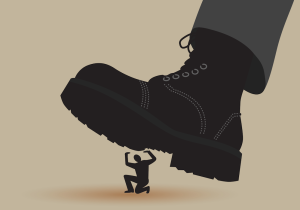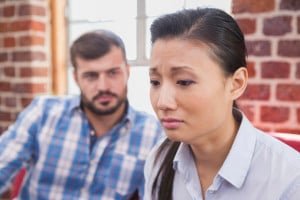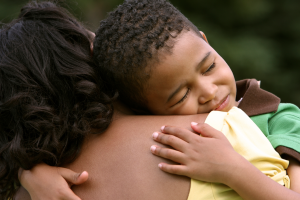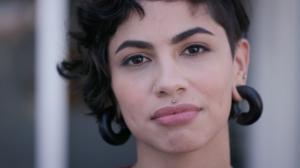The other day, as I was engrossed in my work at a corner in the office with nobody around me, a colleague asked me, “Don’t you get bored sitting here all by yourself?”
I always preferred sitting alone in the small, semi-cubicle with very little space instead of in the large room where most of my colleagues sat, bonding over work and personal life triumphs and tribulations.
I looked up at my colleague as he stood behind my laptop. “No. I like being alone,” I told him. He repeated my answer as if it were a question, nodded, and then walked away.
Often, I come across as a shy and introverted person, and after a few hours of being around people, I immediately crave to be away from them. I have to be alone to get my energy back, to feel alive again.
I choose this kind of aloneness every now and then.
But the kind of aloneness that I am practicing at present is a choice that happened for reasons that I’m still trying to understand fully – that I’d like to investigate now.
It’s a conscious decision to take my life in a direction that I want to explore, and to let myself be the person that, in this phase of my life, I wish to be. This choice of being alone is more than just about being an introvert.
It’s difficult to point to the exact moment when I chose to practice aloneness – to turn inward, to be silent, and to deliberately choose not to have another person “complete” me.
Why did I choose this? What was I looking for?
I later understood that a major part of my choice to practice aloneness was about confronting things about me that I knew were true all the way – and things that made me plunge into the newness that comes from choosing.
Getting Over Dependency Over Others
I was reminded of Cynthia Kane’s “Maintaining Your Identity in a Relationship” on Everyday Feminism that I first read some time last year. I remember how my life was so intermingled at that time with the lives of people I have (or had) close relationships with – friends, family, and a romantic partner.
From the age of 22 to the age of 24, I didn’t make a decision in my life without consulting another person.
I thought if somebody else felt the same way about something that I did, then that’s what I could depend on as an answer.
I thought that I couldn’t depend on my own decision-making skills – from something as simple as what I should have at a restaurant, to something more important, like whether I should pursue further studies or not.
I thought that if the people I loved thought something was a bad idea for me, then I, too, should think the same. For instance, if somebody close to me said I lacked the talent for something, then I gave up my interest in that thing.
I believed that talking about things with other people before any decision-making could actually help you, irrespective of whether their opinion or advice aligned with your final decision.
Yet I often failed to realize this at the time of making decisions. My dependency on others didn’t just affect how I made decisions; it also extended to how I developed my sense of self.
Every new person’s style of life appealed to me so much that I wanted to copy it. For instance, if somebody else could talk about how they saw themselves in five or ten years, I wanted to be that person who was so sure about their life five or ten years down the line.
In my mind, that was the best way to plan one’s life, completely overlooking the constant realizations that neither that style of thinking came naturally to me, nor feeling comfortable with the idea of a rigid control over the flow of my life.
My sense of self became dependent on what people said was good about me and what I should stick to. Losing touch with my own self, I lost track of what my interests and dreams were, and what my style of work or living was.
I became very dependent on other people’s advice. Often, I turned people’s advice or mere opinions immediately into my decisions.
Even as I continued to make decisions in my life, I felt absent in the decision-making process.
And each of those decisions was a confirmation of my inability to be independent.
I’ve realized that the choice to be alone has come as a result of wanting to understand myself as an individual – and not as another person’s idea or interpretation of who I am.
Alone and Independent – Saying ‘No’ to Unhealthy Sacrifices
Around me, there were images of what a modern, independent woman looked like – she was an English-speaking career woman who had equally modern and independent girlfriends whom she hung out with on weekends.
As much as I believe my girlfriends improve the quality of my life, they were not the ones I needed at the time. I needed to push my way out of my comfort zone, and my girlfriends were a big part of my comfort zone
And as much as I know a romantic relationship could lift me higher, I don’t have a partner in my life at the moment, and I don’t miss having one.
In fact, the end of a very significant relationship in my life last year surprisingly freed me in a way that made me rebel against my absence from my own life, and other people’s presence, beyond limit.
I wanted to be independent, the kind that only being alone can make you – independent in everyday life.
But my Indian society didn’t teach me the skills to be alone and independent. I felt I couldn’t go to a coffee shop or to a restaurant alone, so I didn’t.
I didn’t go to the cinema alone. I didn’t go to a museum alone.
I never went on a solo trip, and I dragged my everyday travel to and from work with my earphones on, which meant I wasn’t really alone – not with my thoughts and my inner self, anyway.
In societies where, for the sake of families and larger communities, sacrifices are “demanded” of you – which obviously means they aren’t really, technically sacrifices –individuality is neither widely accepted nor practiced.
The community or society doesn’t just decide what is accepted or rejected, but it also punishes individuals for not conforming.
An individual isn’t capable of being independent since their life has too many decision-makers – family, community, religion and other groups.
I watched my friends give up their individuality after holding onto it for some time. I’ve had acquaintances talk to me about how putting myself before others is a sign that I’m not a nice person.
This same acquaintance often talks a lot about how she sacrifices her interests and desires for her family – which, while I cannot judge, I also do not want for myself.
I’ve started to sense that sacrificing has turned into a habit in her, to the extent that she feels guilty about eating if she’s hungry when nobody else is eating because they aren’t hungry.
And although I’ve always been attached to my family and have built deep friendships, I’ve seen the consequences of seeing other people’s problems as my own. Or even waiting for other people to say “go ahead” before doing something I really wanted to do.
There is a thin line between being polite and compassionate, and being a self-destructive sacrificing machine. The latter is unhealthy.
Struggles with Aloneness
I decided to treat myself better – to turn inward and be alone instead of focusing on other people and their needs. Yet as I thought about myself more and as I practiced aloneness, I found myself struggling.
People around me wondered what was wrong with me – and why I had become self-centered.
It’s not easy – this journey of aloneness. I had too many reasons to quit. One, my own thoughts. Sometimes I felt that I was fooling myself with this whole idea of being alone and being independent. I doubted my ability to be alone.
I’ve lived at home with my parents for the past 25 years of my life. Living with your parents even after you’re all grown up is normal here in India and perhaps in most South Asian countries. For me, too, it is normal. It is safe. It is the way of life.
And being the youngest in my family, I’d been treated like a child for a very long time, and I’ve enjoyed and gotten used to this safety.
Was I even ready to let go of that safety that came with being a child at home? Did my parents think I was mature enough? Did I think I could survive if I moved out?
Another reason I wanted to give up was because I thought I was copying other people’s way of life, a way of life that is more Western.
And although being alone is something I’ve always cherished and practiced every now and then, the thought of expanding the little now-and-then moments into something as huge as even thinking about moving out seemed too risky and too unnatural in my mind.
I wondered: Is this authentic? Is this really who I am, or am I wearing someone else’s personality? Am I trying to be somebody else? Do I feel okay with where my decisions are taking me? Am I being too adventurous? How am I bringing happiness to my loved ones?
Big questions.
But as it turned out, my answer was simple: I wanted to be alone to learn how to be independent.
My first exposure to the idea of an independent individual l was through Western media. The idea made sense to me. And I still feel inclined to the belief that an individual should never be compromised for a community.
Yet there was something about the Western image of independence that didn’t have a space for my idea of a community – a group of loved ones we can pull around ourselves like a warm blanket on a cold night.
The Western idea that being alone is better than a sense of sharing and belonging is often a defense mechanism. Being alone is not better; it’s simple. It’s an idea to un-complicate your life by minimizing people and relationships.
Aloneness is a decision, and like some decisions, it can be undone. I’ve decided to run with this decision to be alone for now while it serves me.
Moments of Self-Love and Self-Care
One of my best aloneness practices is sitting alone in a room or on a park bench and observing my breathing.
This simple act tells me what I need in that moment. Sometimes I figure that what I need in that moment is to simply sit and breathe instead of answering a phone call from a former friend to once again have a conversation on re-building a friendship that I no longer desire.
One of the bravest things that this rush of independence and aloneness made me do was finally having the difficult conversation with my boss that I’d been thinking of having for some time.
Spending time with myself, or rather the lack of time for myself, made me understand what style of work suits me. My job took away about 14 hours of my day – getting ready, traveling, and the work itself.
It seemed that the only things I came home for were dinner and sleep. I didn’t have the energy or the mental bandwidth to do anything except my job, and I didn’t feel very productive at that either.
My job was draining me physically, mentally, and emotionally. I talked to my boss about it, and it seemed to me that quitting my job was the best way out for me.
Surprisingly, within a week’s time, things turned out in my favor. My boss offered me flexibility in schedule and allowed me to work from home. I am now able to be more productive by working for only a few hours a day instead having a long, yet unproductive day in the workplace.
Practicing aloneness has also nudged me towards writing down my new dreams – and taking steps towards them.
I’ve realized that a gratitude journal suddenly became a significant part of my day, that not checking my phone the second I receive a new message is a great feeling, and that it’s okay to let some calls go unanswered.
On this path of aloneness, although I maintained my distance from most people, I couldn’t escape finding new friends – people who I happily think of as my new cheerleaders for independence.
Alone, Independent, and Happy
I’ve realized aloneness has a great healing power. It heals everything from a broken heart to a broken spirit.
Solitude has become a meaningful path of life for me.
It’s not just about being alone, but about observing who I am and how I am when I am alone. It’s about getting over my mind-made pain and insecurities, as well as my fears of being abandoned, being deficient, and feelings of unworthiness.
Just sitting alone for a few minutes a day helps me understand who I want to be in this phase of my life and what decisions I want to make.
The choice to be alone has nudged me into places where I’d never enter alone. It has made me sit on a park bench in the afternoon with nobody to talk to, with not even a book to read.
Never before did I go to a coffee shop alone and sit there for an hour with a book and a cup of coffee. Never before did I go to a fast food shop alone, order a sandwich, and indulge in it.
All of this was uncomfortable at first because the culture I come from isn’t used to individuality – plans of going out means plans with another person.
But this discomfort was soon taken over by the immense sense of power and freedom I felt while sitting there alone, confident in myself.
Being alone brings with it so many experiences that I’d otherwise not have. It has made me peaceful, quiet, and brave. It makes me feel that I can do things for myself; that I can be my own hero.
Most of all, it has made me spend time with myself and understand myself more in different situations and see myself as worthy of opportunities.
And in being alone, I’ve found so much independence.
[do_widget id=”text-101″]
R. Nithya is a Contributing Writer for Everyday Feminism and lives in New Delhi, India. She has a Bachelor’s in Journalism and a Master’s in Political Science and has worked as a reporter with an online political news and analysis magazine. Read her articles here. Visit her here or follow her on Twitter @rnithya26.
Search our 3000+ articles!
Read our articles about:
Our online racial justice training
Used by hundreds of universities, non-profits, and businesses.
Click to learn more
Most Read Articles
- « Previous
- 1
- …
- 30
- 31
- 32




















